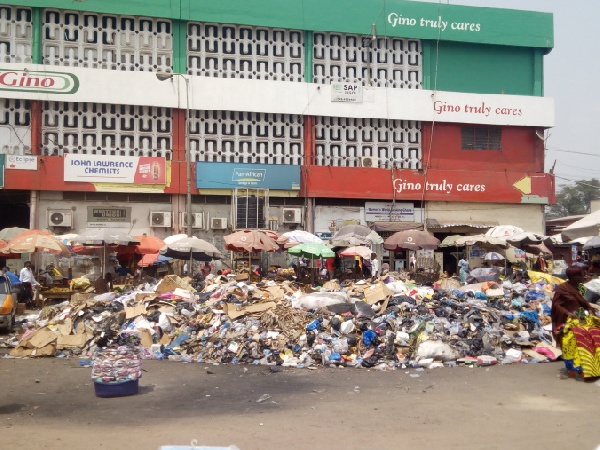Across Ghana, the menace of poor sanitation, particularly choked gutters, is becoming an alarming national crisis.
From bustling urban centers like Accra, Kumasi, and Takoradi to smaller towns and communities, residents are voicing growing concerns about the devastating effects of clogged drainage systems, a problem that fuels flooding, spreads diseases, and erodes the quality of life.
The gutters, originally constructed to channel rainwater and prevent flooding, are now overwhelmed with plastic waste, food scraps, and other debris.
The result, stagnant, foul-smelling water spilling onto streets, creeping into homes, and turning entire neighborhoods into breeding grounds for mosquitoes, flies, and other disease vectors.
“I have lived in my neighborhood for more than a decade, and this has been a recurring nightmare,” says Madam Genevieve Naa Adoley, a resident of Accra.
“Authorities come around only after a disaster strikes. Until then, we are left to suffer the stench, the flooding, and the health risks.”
Her frustration is echoed by residents across the country. Malaria cases are on the rise, and the constant flooding is destroying property. An urgent action needs to be taken.
Field visits to several affected areas reveal gutters packed with plastic bags, bottles, and decomposing organic waste.
In many places, these blockages have not been cleared for months, in some cases, years.
This neglect has made communities more vulnerable to the twin threats of flooding during the rainy season and disease outbreaks in its aftermath.
Experts warn that the problem is not solely the responsibility of local authorities. Poor waste disposal habits among residents remain a major contributing factor. “If we don’t change our attitude towards littering and take responsibility for our environment, no amount of government intervention will be sustainable,” says a public health officer.
The Accra Metropolitan Assembly (AMA) and other municipal assemblies have been called upon to step up regular desilting of drains, enforce sanitation by-laws, and roll out continuous public education campaigns.
Residents urge all metropolitan, municipal, and district assemblies to combine clean-up exercises with law enforcement and community sensitization.
Ultimately, tackling Ghana’s sanitation crisis requires a coordinated national effort involving government agencies, local assemblies, civil society, and ordinary citizens.
Without immediate, consistent action, the choked gutters that have become a common sight from Accra to Tamale will continue to endanger lives, damage property, and tarnish the country’s public health record.
By Titus Owusu Darko


